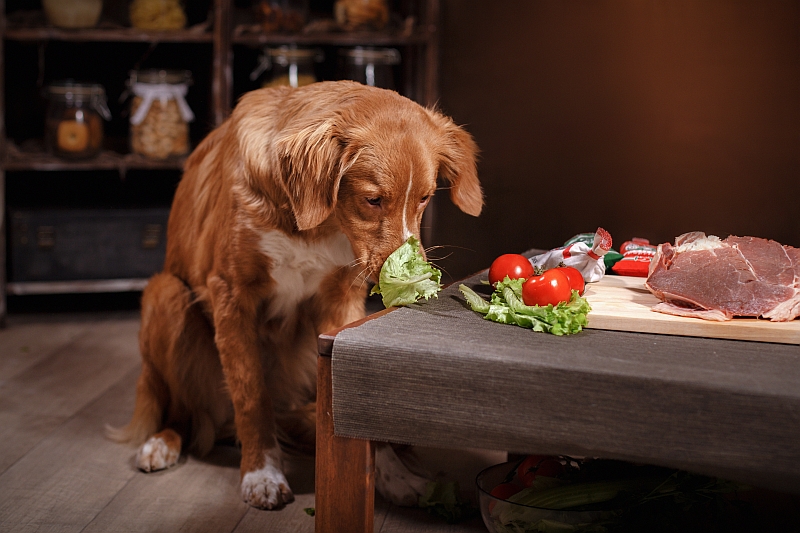Since dogs are considered by most to be members of the family, it only makes sense to take care of them like any other (human) family member, by providing them a home-cooked meal that is not only prepared with love and care, but also fulfills all the nutritional requirements of the canine family member. In order to provide healthy and nutritious homemade food for your canine comrade, there are several considerations that should be kept in mind.
Avoid home-cooked meals made for humans: Even though you may be health-conscious and keep a close eye on what goes in your own food, the same dietary measures will fall greatly short of what your dog needs in order to be healthy and happy. Don’t make the mistake of thinking that just because the food that is of high nutritional quality for humans has the same value when it comes to dogs.
Fat & protein, the all-important ingredients: Unlike humans, dogs require a very high percentage of fat and protein in their diet in order to be healthy and function properly. When preparing homemade dog food, make sure that between 30-35% of the calories come from fat, and about 30% from proteins.
Complex Carbohydrates are important too: The ‘complex’ part is very important since just plain carbohydrates will not provide the necessary nutrients a dog needs, and will even interfere with the digestion process, and absorption of nutritional content. Complex carbohydrates provide energy for the dog, and should make between 35-40% of your dog’s daily caloric intake.
Don’t forget the calcium: Dogs have a high dietary requirement for calcium, and as such will need to have food that is either very high in calcium (which is hard to do) or have calcium additives included in their food in order to meet the minimum recommendations. A dog (depending on the stage of life and reproductive activities) needs between 0.5-1.8% of her daily diet to consist of calcium. Do be careful to not overdo the calcium as it too can have negative health implications. Before starting on any homemade dog food regiment, it is recommended that you consult your veterinarian to learn about your dog’s specific needs, especially that of calcium.
Raw diet: The ancestors of our canine companions lived on a raw diet; however, before starting to feed your dog a homemade raw diet it is important to do your research, and talk to your veterinarian and an animal nutritionist; because, even though a raw diet can have many benefits, it is not suitable for every dog type or breed.
Multiple-dog owners beware: If you have multiple dogs in your household and decide to feed them a homemade diet, it is important to realize that you may not be able to just make one type of food and satisfy all of their nutritional needs; it may be necessary to customize food for each of your dog if they are of vastly different types (i.e. toy breed, and gun dog).
Homemade Dog Food & Treat Recipes
You will have an easy time finding homemade dog food and treat recipes by doing a simple search on any of the major (or even minor) search engines; however, it is important to not rely solely on the information that the food recipe provider offers, and do your own research and even seek out the opinion and advice of your veterinarian before using recipes that you find online (or develop yourself).

